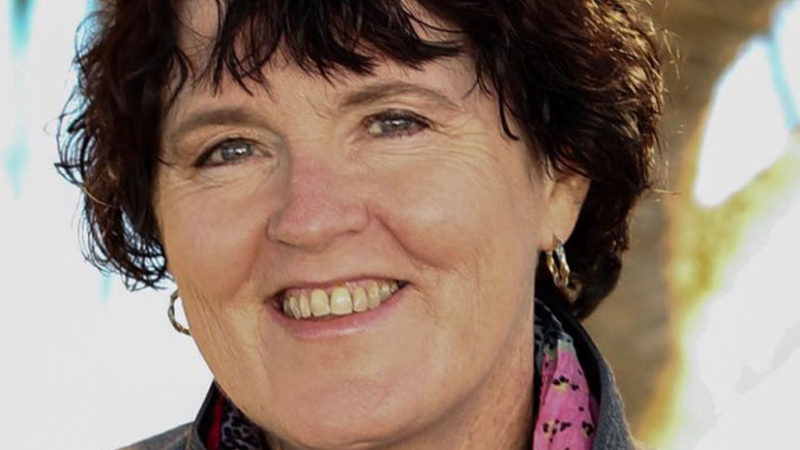-
E107: Becoming Okay Inside
Michael Singer — August 28, 2025
The fundamental spiritual question is not “How do I be okay?” It is “Why am I not okay?” Our ...
-
Andrew Holecek: What Reincarnates? | Part 2
Andrew Holecek — August 26, 2025
Join Tami Simon and Andrew Holecek for the second half of their exploration of reincarnation. Here,...
-
Honey Tasting Meditation: Build Your Relationship with Sweetness
There is a saying that goes “hurt people hurt people.” I believe this to be true. We have been...
Written by:
Amy Burtaine, Michelle Cassandra Johnson
-
Many Voices, One Journey
The Sounds True Blog
Insights, reflections, and practices from Sounds True teachers, authors, staff, and more. Have a look—to find some inspiration and wisdom for uplifting your day.
Standing Together, and Stepping Up
Written By:
Tami Simon -
The Michael Singer Podcast
Your Highest Intention: Self-Realization
Michael Singer discusses intention—"perhaps the deepest thing we can talk about"—and the path to self-realization.
This Week:
Andrew Holecek: What Reincarnates? | Part 2 -
Many Voices, One Journey
The Sounds True Blog
Insights, reflections, and practices from Sounds True teachers, authors, staff, and more. Have a look—to find some inspiration and wisdom for uplifting your day.
Take Your Inner Child on Playdates
Written By:
Megan Sherer
600 Podcasts and Counting...
Subscribe to Insights at the Edge to hear all of Tami's interviews (transcripts available, too!), featuring Eckhart Tolle, Caroline Myss, Tara Brach, Jack Kornfield, Adyashanti, and many more.
Most Recent
Awakening the Spiritual Heart with Adyashanti
Adyashanti is an American-born spiritual teacher whose work adheres to no single tradition, but points the way toward awakening for all seekers. He has published many books and audio programs with Sounds True, including The Most Important Thing, The End of Your World, and Resurrecting Jesus. In this episode of Insights at the Edge, Tami Simon speaks with Adya (as his friends and students call him) about The 30-Day Wake Up Challenge, an upcoming online course designed to take listeners on a journey through the layers of awakened consciousness over the course of a single month. Tami expresses her excitement about the course and asks Adya whether it’s really possible to “wake up” in just a few weeks. Adya talks about the liberation of dropping into the Spiritual Heart, leading listeners in a practice for touching this sublime, compassionate inner space. Finally, they discuss the everyday applications of touching awakened awareness, as well as why The 30-Day Wake Up Challenge has been one of Adya’s intensive projects.
(66 minutes)
Bronnie Ware: Living Without Regrets
Bronnie Ware is an author and speaker whose bestselling book, The Top Five Regrets of the Dying, is based on her time as a palliative care worker. In this episode of Insights at the Edge, Bronnie outlines these five major life regrets with Tami Simon and discusses the experiences in end-of-life care that inspired them. Bronnie explains how most regrets arise from a lack of courage and why people are willing to share so openly during their last days. Tami and Bronnie speak on the healing power of sharing our most vulnerable selves, even if it’s in a letter that we never send. Finally, they talk about maintaining trust in the flow of life and why happiness is ultimately a choice.(61 minutes)
Bigger Isn’t Always Better (and Other Cultural Myths...
 Some of our beliefs aren’t even ours. Like old wives’ tales passed down through generations or reflected back to us through society, we inherited certain cultural and familial narratives, adopted them, and left them unquestioned as “Truth.” Sometimes these inherited narratives and beliefs manifest as unquestioned traditions. For example, when making the Thanksgiving turkey, my friend’s mother always cut the breast of the bird off and roasted it separately. This process was embedded in my friend’s view of “how to cook a turkey.” When she moved to New York and began hosting her own Thanksgivings, she also sliced the top off the turkey and cooked it separately. Naturally.
Some of our beliefs aren’t even ours. Like old wives’ tales passed down through generations or reflected back to us through society, we inherited certain cultural and familial narratives, adopted them, and left them unquestioned as “Truth.” Sometimes these inherited narratives and beliefs manifest as unquestioned traditions. For example, when making the Thanksgiving turkey, my friend’s mother always cut the breast of the bird off and roasted it separately. This process was embedded in my friend’s view of “how to cook a turkey.” When she moved to New York and began hosting her own Thanksgivings, she also sliced the top off the turkey and cooked it separately. Naturally.
One year a guest asked her why she didn’t cook the turkey whole, which got her to thinking. She didn’t actually know why. It’s just the way it had always been done. So she called her mother to ask about the tradition: Why do we cut the tops off our turkeys? Her mother replied that she had always taken the top off because her mother had always taken the top off; it’s just the way she had learned how to cook a turkey. Naturally curious as to where this learned behavior all began, her mother called her mother, my acquaintance’s grandmother, and asked: Why do we cut the tops off our turkeys?
The grandmother, stumped, thought for a long, hard minute. “Oh,” she remembered, “the oven in my very first apartment was too small to fit an entire turkey, so I had to cook it with the top cut off.” Sixty years later, in a city across the country, my acquaintance was still cooking turkeys as a result of an oven that was too small. This is how inherited narrative works.
Here are some of the narratives that I inherited over the years, in order from most helpful to least: You can be anything that you want to be. Money isn’t very important. It is what it is, and it can’t be changed. Men prefer pretty over smart. Asking for help means you’re weak and needy. These are the ones that I’ve managed to tease out; I’m sure there are plenty more operating in the background that I can’t see.
Part of developing a wholesome or Beneficial View is identifying the stories that we live by, where they came from, and, perhaps most importantly, whether or not they are helpful on the path of waking up to our worthiness. Shariputra, one of the Buddha’s chief disciples, described Beneficial View as the practice of identifying which of our views spring from beneficial beliefs and which spring from harmful beliefs, and then choosing which to nourish and cultivate. Sometimes this also means looking at the views of the culture that we live in.
A few times every year, I host group coaching programs for a rather large online training institute with a global reach, drawing students from a dozen countries, primarily women of varying ages. These groups offer an encouraging environment in which we can speak openly about our fears and hesitations. Over the past decade, working as a coach has revealed to me just how many of us feel a chronic sense of falling behind and a nagging suspicion that we’re not quite _________ enough. You can fill in the blank here with your own particular flavor of not-enough-ness. Not educated enough, smart enough, good-looking enough, likable enough, thin enough . . . You get the picture. A consistent element of these groups has been a gobsmacking number of women sharing that they view their capabilities as insufficient or lacking. Sometimes this feeling extends to the way that they view themselves as people. It’s said that if one fish washes up on the shore, the scientist will call it what it is: a dead fish. Nothing of note, really. However, if hundreds of fish wash up on the shore, the biologist won’t look to the fish for answers. They’ll test the water that the fish are swimming in. So what’s up with the water that we all seem to be swimming in?
In the Western hemisphere, there is a deeply embedded narrative of scarcity that is nearly invisible. I don’t know about you, but I clearly remember playing the childhood game of musical chairs. It begins as a cheerful romp around the circle, with kids squealing and running to nab a chair once the music stops. As the game progresses, however, the stakes get higher. The chairs begin to disappear. The slowest, smallest, and most accommodating kids get disqualified. And the fastest, most aggressive kids advance amidst the dwindling resource of chairs. Good, clean childhood fun. Also, a wonderful way to implicitly teach kids this prevailing myth of scarcity: There is simply not enough to go around. And you better get yours before someone else takes it.
Author, activist, and fund-raiser Lynne Twist illustrates this phenomenon exquisitely in her book The Soul of Money. She likens the scarcity narrative to a “helmet” of insufficiency that we wear throughout our day that flavors every interaction we have. For example, our first thought when getting up in the morning tends to be I didn’t get enough sleep. As we get ready for the day, we think, I don’t have enough to wear, I don’t have enough time, I don’t have enough room on the subway, I don’t have enough help to get this job done well, There aren’t enough good men or women on Tinder, I don’t have enough energy to meet up with my friends, and then our final thought before falling asleep is I didn’t get enough done. This view of not having enough is truly pervasive. It’s no wonder that the women I’ve worked with consistently communicate that they don’t feel like they can live up to their own, or society’s, expectations.
Even if we try to address the messages we might tell ourselves about what we have and don’t have, we can’t avoid them altogether. I was riding the subway to Brooklyn one day when a father and his daughter, who was all of five or six years old, entered the train and stood toward the center of the car. She was chatting to her dad about her day at school until one of the many subway ads caught her eye. In it, there were two juxtaposed photos of a blonde woman. In one photo, the woman was frowning while holding a lemon in each hand, which were hovering at chest height. In the other, she was holding two grapefruits, also at chest height, but she was grinning. “Dad, why is she happy in that one and sad in that one?” the girl asked, pointing to the ad for breast augmentation. I swear the entire subway car went silent in anticipation of how her father would respond. He awkwardly and skillfully lobbed the question back to his daughter. “Well . . . what do you think?” The girl waited a beat and then answered, “She’s happy there because she has big ones and sad there because she has small ones.”
Clearly she had understood the message this poster was communicating to us all: a message of scarcity, insufficiency, and how one might always be “better.” And in that instant I understood how conditioning works. Hello, demon of self-doubt. Just like the fish in the ocean, we’re bound to swallow the water that we swim in. When considering what it means to develop Beneficial View, and the view of our own worthiness, it can be helpful to identify why we might not feel worthy to begin with. If our cultural perspective is rooted in the myth of “not enough,” it would logically follow that we would inherit this not-so-beneficial view of ourselves. Through looking at our own mind in meditation practice, we begin to take stock of the stories and beliefs that are not serving us, unraveling this myth of “not enough,” and revealing the Beneficial View of our innate wholeness and worth.
This is an excerpt from Tea and Cake with Demons: A Buddhist Guide to Feeling Worthy by Adreanna Limbach.
 Adreanna Limbach is a personal coach and a lead meditation instructor at MNDFL, NYC’s premier drop-in meditation studio. Her teachings have been featured in the New York Times, Women’s Health, and Refinery29. She lives in New York City. For more, visit adreannalimbach.com.
Adreanna Limbach is a personal coach and a lead meditation instructor at MNDFL, NYC’s premier drop-in meditation studio. Her teachings have been featured in the New York Times, Women’s Health, and Refinery29. She lives in New York City. For more, visit adreannalimbach.com.
Buy your copy of Tea and Cake with Demons at your favorite bookseller!
Sounds True | Amazon | Barnes & Noble | Indiebound

Customer Favorites
Henry Grayson: Your Self-Healing Power
Henry Grayson, PhD, is a psychotherapist, public speaker, and the author of such books as Changing Approaches to the Psychotherapies and The New Physics of Love. With Sounds True, he has published his newest book, Your Power to Heal: Resolving Psychological Barriers to Your Physical Health. In this episode of Insights at the Edge, Tami Simon talks with Henry about how our beliefs and cultural conditioning may affect our long-term health. Henry discusses how identifying our subconscious limiting narratives can help us embrace our own self-healing capabilities. Tami and Henry also speak on methods of pulling ourselves out of entrenched conditioning and seven steps for identifying what might be underlying physical symptoms. Finally, Henry shares a practice for approaching and eventually getting clear of a limiting personal belief. (69 minutes)
Michelle Cassandra Johnson and Amy Burtaine: The Wisdo...
More and more people are waking up to the very real dangers that humanity is facing as a result of a declining honeybee population. Yet as we join the refrain, “Save the bees!” Michelle Cassandra Johnson and Amy Burtaine pose a profound and extraordinary question: What if it’s the bees who are trying to save us?
In this eye-opening conversation with the coauthors of the new book The Wisdom of the Hive, Tami Simon speaks with Michelle and Amy about bees as psychopomps who come to us with guidance; the spiritual lineage of bee priestesses; sustainability and respect in bee tending; hive consciousness and the concept of the superorganism; bees as an indicator species and the consequences of colony collapse for humanity; tending bees in a way that aligns with how they want to live; experiencing the power of the hum; the healing properties of the hive; how opening a jar of honey can turn into a shamanic journey; the waggle dance; the adaptability of bees and the various roles they play over their lifespan; the queen and her brilliance; becoming less fearful of bees (and what to do when one lands on you!); bees as a model of faith and trust; the question bees have for each one of us: What is the medicine I can offer?; how bees demonstrate gratitude, contentment, and equanimity; the swarm; meaning, connection, creativity, and contribution; the polarity of the dark and the light; the gift of “a box of sweetness”; why “the more you give away, the more you have.”
Note: This episode originally aired on Sounds True One, where these special episodes of Insights at the Edge are available to watch live on video and with exclusive access to Q&As with our guests. Learn more at join.soundstrue.com.
gina Breedlove: The Vibration of Grace
We all carry grief in one form or another. Whether it’s unhealed wounds from our past or a heart that’s breaking over the suffering in our world, so many of us are desperately seeking solace and hope. In their new book, Vibration of Grace, vocalist and traditional sound healer, gina Breedlove, brings us a toolbox of rituals and practices to invoke the power of sound as a vehicle of love and liberation—for ourselves, our loved ones, and everyone around us.
In this podcast, Tami Simon speaks with gina about their life and work, sharing insights on: using your voice as a healing technology; how humming soothes a dysregulated nervous system; the communal practice of grief-letting; the “pulling” ritual to release negative energy; processing our “all of a sudden” times; offering love to our bodies; gina’s unique technique for letting go of anger; how intention and inner boundaries help us navigate health challenges; why any practice must be rigorous to be effective; finding sovereignty within our body and discerning what belongs to us; soul retrieval; shifting our narratives around “burden”; and more.
Note: This episode originally aired on Sounds True One, where these special episodes of Insights at the Edge are available to watch live on video and with exclusive access to Q&As with our guests. Learn more at join.soundstrue.com.




